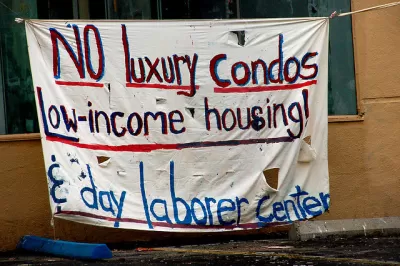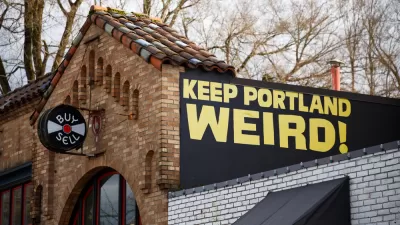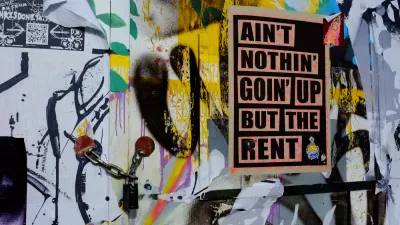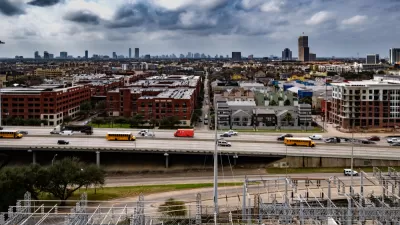A loan program helps non-profits procure affordable apartment buildings that might otherwise be snatched up by speculative developers.

In 2014, San Francisco launched a pilot project to save affordable apartment buildings from being converted to high-rent new developments—part of the gentrification and displacement process that often involves mass eviction of existing low-to-moderate-income tenants.
In its pilot stage, Small Sites provided loans that saved at least 13 at-risk buildings. Now housed at a new non-profit, the San Francisco Housing Accelerator Fund, the program is poised to continue its work into the foreseeable future, beginning with about a dozen more buildings.
"FHAF was conceived collaboratively by affordable and market-rate developers, community groups, residents, mayoral staff in housing and neighborhood development agencies, and other partners," Oscar Perry Abello reports at Next City.
The fund focuses on buildings that are bear all the hallmarks of gentrification: They are or have been under rent control; they house longtime and medium-to-low-income tenants; and they appear likely to be purchased by a developer who might evict or drastically raise the rent on current tenants. Moreover, Abello notes, the program's efforts must have the backing of the residents: "there must be clear evidence that tenants are already organizing or would be willing to organize against new owners who would evict them."
FULL STORY: San Francisco Now Has a One-Stop Shop to Invest in Fighting Displacement

Planetizen Federal Action Tracker
A weekly monitor of how Trump’s orders and actions are impacting planners and planning in America.

Restaurant Patios Were a Pandemic Win — Why Were They so Hard to Keep?
Social distancing requirements and changes in travel patterns prompted cities to pilot new uses for street and sidewalk space. Then it got complicated.

Maui's Vacation Rental Debate Turns Ugly
Verbal attacks, misinformation campaigns and fistfights plague a high-stakes debate to convert thousands of vacation rentals into long-term housing.

In California Battle of Housing vs. Environment, Housing Just Won
A new state law significantly limits the power of CEQA, an environmental review law that served as a powerful tool for blocking new development.

Boulder Eliminates Parking Minimums Citywide
Officials estimate the cost of building a single underground parking space at up to $100,000.

Orange County, Florida Adopts Largest US “Sprawl Repair” Code
The ‘Orange Code’ seeks to rectify decades of sprawl-inducing, car-oriented development.
Urban Design for Planners 1: Software Tools
This six-course series explores essential urban design concepts using open source software and equips planners with the tools they need to participate fully in the urban design process.
Planning for Universal Design
Learn the tools for implementing Universal Design in planning regulations.
Heyer Gruel & Associates PA
JM Goldson LLC
Custer County Colorado
City of Camden Redevelopment Agency
City of Astoria
Transportation Research & Education Center (TREC) at Portland State University
Camden Redevelopment Agency
City of Claremont
Municipality of Princeton (NJ)





























